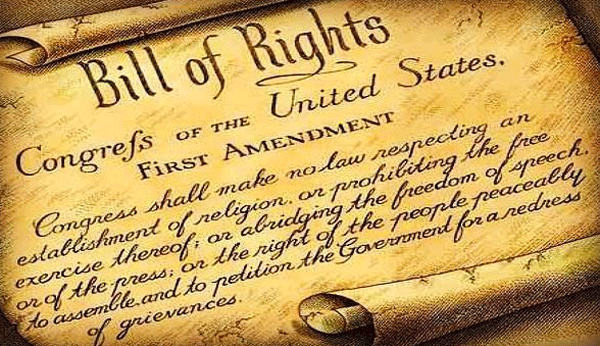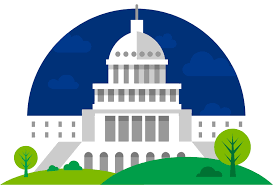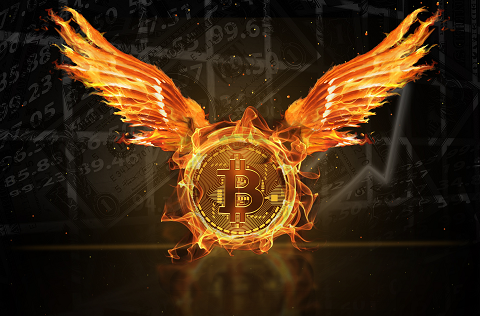Is a major attack on free speech inevitable?

I think about this every time I think about decentralization and where this is all going. Granted, free speech is always under constant attack every day of the year, but I assume the aggression against free speech will have to escalate exponentially.
Why's that?
At its core crypto is all about governance. We like to call it consensus, but really these two words are fully synonymous. The thing that makes distributed ledger technology unique is that the governance that controls the network isn't dictated by any elite group or trusted authority, but instead by the ideals of the community in question.
Essentially, we've finally figured out a way to automate the human element (corruption) out of the governance model. Rather than trust a person to be in charge we've finally figured out a way for our ideals to be the law of the land in the form of distributed consensus. In a way, this is the ultimate form of what direct democracy is supposed to be.
Fledgling
The process of automating consensus is not a simple one, therefore it's currently difficult to see how Bitcoin could possibly be a substitute for any of our current governance structures (or even a substitute for currency). Bitcoin is more of a proof-of-concept in this regard; the most basic consensus model possible, just to show us that it can be done and needs a lot more work. The simplicity and stagnation of Bitcoin is often touted as feature rather than a bug. The more complexity that is added to consensus, the more attack vectors will pop up through the cracks. Bitcoin is the anchor.
Speculation
However, I can see where this is going, and like all forms of automation, DLT is a huge threat to the most powerful and dangerous people on the planet. Automating governance takes away that power from the elite and puts it back in the hands of the people. Clearly, the ones in power will not take kindly to this kind of disruption (unless they have even more to gain through capitulation).
How does freedom of speech play into this?
Code is protected by free speech, and I think this is going to be a big problem going forward for the powers that shouldn't be. Take my Lottoshi idea for example. What's going to happen if a global lottery based on Bitcoin comes around and it's superior in every way to state-run lotteries?
A lot of effort has gone into creating these silos of absolute control. Regulations are touted as the ultimate way to 'protect' the population, but in reality the ones making the rules often twist them in order to corner the market and kick possible competition to the curb. What happens when their precious regulations are rendered useless by a system of automated governance that can't be shut down? It won't look pretty.
Nationally, state lotteries generated $66.8 billion in gross revenue in fiscal 2015, which exceeds the $48.7 billion generated by corporate income taxes.
Something as simple as a Bitcoin lottery taking over could crash multiple economies by itself. Imagine what would happen if 20+ industries all started getting disrupted at once.
As it stands now, developers can create anything they want free of worry that they'll be prosecuted for something illegal. Even if the code can be used for illegal activity, programming that code falls under the protection of free speech. You'll only get in trouble if you do the illegal thing, not if you create the tool that allows it to happen. Judging by the direction things are headed, I have to assume that this will not always be the case. When that time comes I believe this will signal that the establishment is on its last legs.

I used to be a fairly skilled poker player. I even started creating my own database to help me play online. However, I pretty much had to give this all up after the "Black Friday" event in which the United States government shut down the top four poker sites. They were all greedily laundering money while avoiding taxes and regulations. It was only a matter of time.
What is the primary way to make something like online poker illegal? It isn't going after individual players like one might expect (decentralized solution). Rather, the banking system is targeted. Banks are no longer allowed to process those transactions (centralized solution). What happens when banking becomes automated and impossible to regulate? Dozens (if not hundreds) of laws and regulations will become impossible to enforce. The only option left will be to attack individuals directly.
As we saw with the war on torrents, this doesn't work out very well. They can't fine individuals millions of dollars because they don't have the money. They can't take everyone to court because the resources for that don't exist. The resources required for taking the average person to court far exceeds the money they can get back from fines.
But they'll probably try anyway.
So what happens when something like an unregulated lottery pops up on the blockchain? Who will the government look to punish? Can they punish a node for simply relaying illegal transactions to the blockchain? If they do clients will just use another node. Can they shut down all the nodes? They couldn't even shut down a much more centralized Pirate Bay that was only running servers in a single country. How could they possibly shut down hundreds (if not thousands) of nodes all around the world?
Do we think it's an accident that net neutrality has been so aggressively under attack recently? The next logical step is to control what happens on the web by controlling the Internet Service Providers. Centralization is key for maintaining control.
Who benefits from censoring information?
We live in a digital age. Controlling information has never been as powerful or valuable than it is right now. For the most part, the only reason to censor information is that doing so is beneficial to a small group. By default, this same information is often times valuable to the masses at large.
Is resistance futile?
The value of decentralization is so great that fighting against it at this point may be a complete fool's errand. Technology has been advancing exponentially for longer than my lifespan, however our governance structures have remained stagnant and tilted toward the elite for thousands of years. Eventually there will be a tipping point where the value to be gained from decentralized governance makes it foolish to reject, no matter how much absolute power the people in charge lose. If a slave owner has to choose between owning slaves or multiplying their net worth by x100, I have to assume the vast majority are going to take the x100.
This creates a potential situation where the elite turns on each other and cannibalize themselves. We already see seeds of this sown today. A lot and rich and powerful people already have huge stakes in cryptocurrency, and want to see it succeed.
This factor will only become more pronounced over time as infrastructure improves and market caps increase. Normally, this would lead to the technology becoming siloed intellectual property as it always has been in the past, but when the foundation of this new economy rests on the flat architecture of open source code, this becomes a much more difficult goal to achieve.
Easier to stay anonymous.
If Edward Snowden had tried to warn everyone about the United States' blanket surveillance without coming forward and identifying himself, no one would have taken that information seriously; it would just be another "crazy conspiracy theory" that "only and idiot would believe" in the eyes of many Americans. Today, no one questions the legitimacy of these facts because Snowden was willing to burn his citizenship by being the whistle-blower. Unfortunately, the general population just doesn't care very much. What can they do?
I have nothing to hide.
--- Everyone who doesn't understand why privacy is important.
Code is different.
Nobody questions the legitimacy of Bitcoin due to Satoshi Nakamoto being a pseudonym. Code either works or it doesn't, and Bitcoin has been working for a decade. While I fear that freedom of speech as it relates to DLT development may come under attack, perhaps the logistics of doing so will prove very difficult. Open-source code can be dispersed anonymously and no one will question whether it is legitimate or not. It either is or isn't. Unlike verbal speech, the answer is known, and the value is undeniable.
Conclusion
The founding fathers of America put the first amendment first for a reason. Their experience taught them attacks against free speech would be clear signs of corruption and the eventual decline of an empire, just like it always is. This empire is certainly in decline, although we are using every trick in the book to stay afloat. It's only a matter of time before fate catches up to this festering neon distraction of a broken economy. From the ashes rises a phoenix.

First, the first amendment doesn't have any power in THEIR courts.
T.H.E.Y. do their best to keep up the appearance, because getting the masses upset is hell for the T.H.E.M.
THEIR whole, entire, life plan, focus, direction, thinking apparatus is all about controlling the narrative. T.H.E.Y. own all the newspapers of any note. T.H.E.Y. own all the TV stations, most of the radio stations and all the big tech companies.
T.H.E.Y. would turn off the internet if it wouldn't unleash the most gigantic backlash.
T.H.E.Y. would never release THEIR slaves, ever.
However, THEIR lackies would jump on this deal.
Unfortunately, like the internet, allowing digital currencies allows for what they want, ultimate control, but it also allows for all the slaves to leave Slavelandia.
A bitcoin lottery, even one run very inefficiently, would pay out nearly double what the state lotteries do. How can you compare 10% overhead (and that is pushing it) to 50-60% overhead of state run lotteries.
It is already a thing, just not any great big million dollar b-lotteries yet.
That sounds nice but its not how it works. Steemit is most certainly controlled by a self appointed elite. How can anyone deny it?
It was that elite that froze the accounts.
They do not want relinquish their domination of the top 20 witnesses
indeed, and is direct mass mob rule really the best way to organise ourselves? i'd rather it lead to a permanent conservatism (stalemate,) if the network is safe and equitable in the first place.
I agree. The ultimate goal of any legal system (code version) should be to reach a steady-state, where no further revisions are needed.
100% this.
"What's going to happen if a global lottery based on Bitcoin comes around and it's superior in every way to state-run lotteries?" this statement which you made actually got me wondering too,it is really a thought provoking question,great one from you sir...
Posted via Steemleo
i think why some free speech are attacked is that those who have listened carefully to the speech thinks that the speech could cause some damages depending on the subject which the speech is about....
Posted via Steemleo
Simple really...Just pull the plug and we will be under a billion people in no time! Elegantly simple when all you have to do is wait it out for a few years in a lavish bunker.
Now what trickery could you be alluding to:P